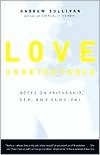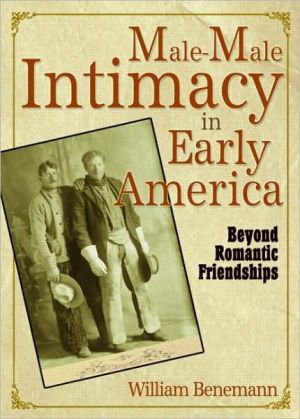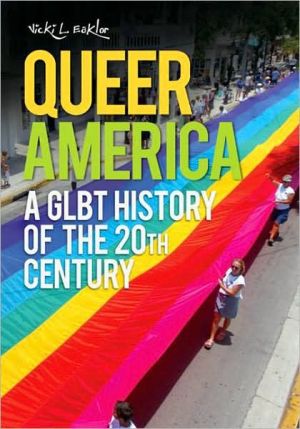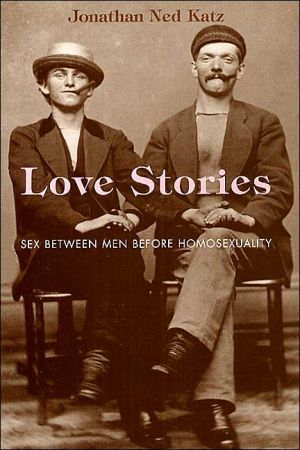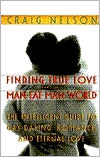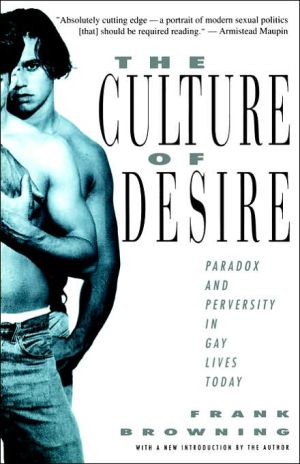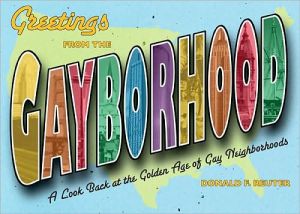Love Undetectable: Notes on Friendship, Sex, and Survival
"Sullivan offers [a] profound, often beautiful appreciation of friendship. . . . [He can] fascinate us with the range and depth of his mind."--San Francisco Chronicle\ A New York Times Notable Book of the Year \ "One of the great pleasures of this book lies in watching Sullivan's mind at work . . . [his essays] are filled with a passion and heat that most cultural criticism lacks." --Katie Roiphe, The Washington Post\ When former New Republic editor Andrew Sullivan publicly...
Search in google:
Andrew Sullivan has brought a balanced perspective to the gay debate in his new collection of three major essays, gathered under the general title Love Undetectable. Sullivan's title is almost a challenge to his gay brethren and sisters, as well as to the heterosexist world to face its own prejudices, asking, 'Is our love of note -- or is it undetectable?' Some of us in the gay community at large feel that there's too much of an antigay atmosphere in the air these days; Sullivan seems to respond to this with the idea that we are all part of the problem and, therefore, the solution as well. Publishers Weekly The AIDS plague is over, Sullivan declares in the first of three astute, searching essay-memoirs, arguing we should now view it as a manageable disease. An optimistic view, this, and one that holds only for patients of means. But it's also a diagnosis not without merit, given Sullivan's emphasis on AIDS as a cultural watershed in the gay community. The first essay, some of which was first published in the New York Times Magazine, neatly traces the confusion and ambivalence that have begun to set in as the crisis, one that galvanized a movement, seems to abate. In the second essay, "Virtually Abnormal" (whose title plays off Sullivan's previous book, Virtually Normal), the New Republic senior editor engages the question of etiology, for "where homosexuality comes from" remains for Sullivan a "fascinating" question. This essay reflects Sullivan's tortured efforts to reconcile his Catholic faith with his homosexuality, an issue that also troubled the late Yale historian John Boswell. Like Boswell, Sullivan sees human sexuality almost exclusively in terms of the heterosexual/homosexual binary, and draws the familiar conclusion that gayness is a result of both genetic predisposition and environmental factors, predictably taking heterosexuality as a sort of base line from which one deviates. The best essay by far--though all are engagingly written--is the last, "If Love Were All," which discusses a topic not, according to Sullivan, taken seriously enough since the Middle Ages--friendship. Drawing upon Aristotle, Augustine, Montaigne, Emerson and others, Sullivan finds it, fittingly, to be "the deepest legacy of the plague years." (Oct.) FYI: Sullivan served as editor of the New Republic from 1991 to 1996.
Prefaceix1. When Plagues End32. Virtually Abnormal893. If Love Were All175Select Bibliography254
\ Publishers Weekly - Publisher's Weekly\ The AIDS plague is over, Sullivan declares in the first of three astute, searching essay-memoirs, arguing we should now view it as a manageable disease. An optimistic view, this, and one that holds only for patients of means. But it's also a diagnosis not without merit, given Sullivan's emphasis on AIDS as a cultural watershed in the gay community. The first essay, some of which was first published in the New York Times Magazine, neatly traces the confusion and ambivalence that have begun to set in as the crisis, one that galvanized a movement, seems to abate. In the second essay, "Virtually Abnormal" (whose title plays off Sullivan's previous book, Virtually Normal), the New Republic senior editor engages the question of etiology, for "where homosexuality comes from" remains for Sullivan a "fascinating" question. This essay reflects Sullivan's tortured efforts to reconcile his Catholic faith with his homosexuality, an issue that also troubled the late Yale historian John Boswell. Like Boswell, Sullivan sees human sexuality almost exclusively in terms of the heterosexual/homosexual binary, and draws the familiar conclusion that gayness is a result of both genetic predisposition and environmental factors, predictably taking heterosexuality as a sort of base line from which one deviates. The best essay by far--though all are engagingly written--is the last, "If Love Were All," which discusses a topic not, according to Sullivan, taken seriously enough since the Middle Ages--friendship. Drawing upon Aristotle, Augustine, Montaigne, Emerson and others, Sullivan finds it, fittingly, to be "the deepest legacy of the plague years." (Oct.) FYI: Sullivan served as editor of the New Republic from 1991 to 1996.\ \ \ \ \ BooknewsThree essays comprise a memoir in which Sullivan (Virtually Normal deals with such questions as whether friendship can compensate for a life without love, whether sex is at war or peace with spirituality, whether faith can endure the randomness of death, and whether homosexuality is genetic or environmental. The undetectable of the title alludes to the reduction of HIV in the blood to below measurable levels by new drugs. No index. Annotation c. by Book News, Inc., Portland, Or.\ \ \ Andrew Delbanco[Sullivan] wants to see same-sex love fully accepted as a dignified form of human relations. . .This book can only help the cause. -- The New York Times Book Review\ \ \ \ \ Liz GalstOn display here are all of the author's many strengths -- a compelling, poetic prose style, some keen observations on faith, an evocative retelling of his friendship with a man felled by AIDS. -- The Boston Globe\ \ \ \ \ Norah VincentThis is vintage Sullivan -- sound, fair, respectful, and clear. . . .Love Undetectable [is]. . .a careful, measured argument about homesexuality. . . .But it's also an AIDS memoir masquerading as cultural commentary. -- National Review\ \ \ \ \ Kirkus ReviewsIn three elegant essays, Sullivan (Virtually Normal) reflects on his quest for love. The essays examine, first, the psychological impact of unexpected prospects for longer life that, thanks to protease inhibitors, many HIV+ gay men can now expect to claim; second, the psychological origins of homosexuality; and third, the philosophy and experience of friendship. A logical thread leads unobtrusively away from the theme of promiscuity discussed by Sullivan in his first essay, to the stable homosexual-personality construct of the second, to the sex-free discipline of responsible gay friendship rounding out the third. The author's style is so disarmingly congenial that one forgets how controversial his positions are. As a self-described 'dogged traditionalist,' he faces the daunting task of normalizing a sexual orientation that has historically bucked tradition. And he largely succeeds. The most persuasive argument is waged in the second essay, a brilliant dusting-off of Freud, who shows himself at Sullivan's hands to be a potential friend of gay male identity, which 'hovers precariously between nature and will.' Sullivan's Freudian take on common features of gay male childhood—close identification with a mother, disdain for sports, and sensitive passivity—is that these, far from causing homosexuality later, result from a previous disposition toward it, encouraged by environmental factors. Sullivan constructs a gay normalcy that, oxymoronically, remains (to the delight, surely, of most gay men) 'resiliently subversive and elusive.' But dogged tradition does enjoy the final word: In the 'Great Books' approach to friendship taken by Sullivan in the third essay, freedomand 'radical choice' shed any overtones of linkage to promiscuity. They emerge as the foundation of a noble, Aristotle-approved gay culture of friendship. An intelligent exploration.\ \
